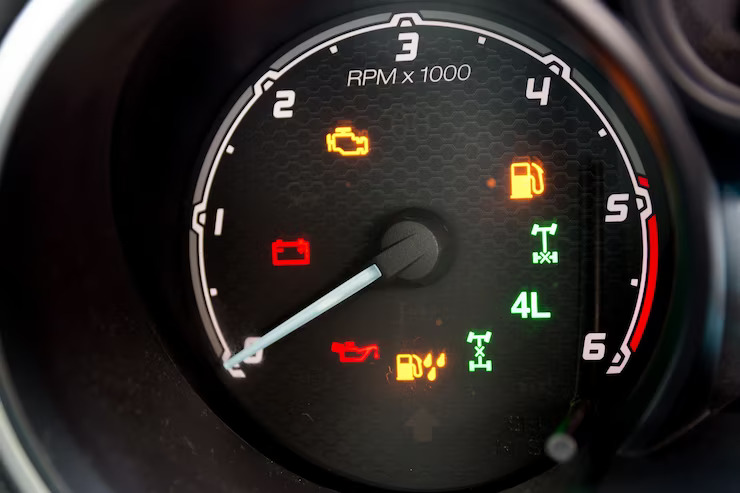Fuel contamination is a common issue that can lead to engine problems and reduced vehicle performance. To alert drivers of potential fuel contamination, many modern vehicles are equipped with fuel contamination warning lights. These warning lights illuminate on the dashboard when the fuel system detects the presence of contaminants in the fuel, indicating a potential problem that needs to be addressed. In this article, we will explore the causes of fuel contamination warning lights and provide fixes to resolve the issue effectively.
Causes of Fuel Contamination:
- Water Contamination: Water can find its way into the fuel system through various means, such as condensation in the fuel tank, improper storage, or filling up at a gas station with contaminated underground fuel tanks. Water in the fuel can cause damage to engine components, disrupt fuel combustion, and lead to poor engine performance.
- Sediment and Particles: Fuel can become contaminated with sediment, dirt, rust, or other particles during storage, transportation, or if the fuel tank is not cleaned regularly. These contaminants can clog fuel filters, injectors, and other fuel system components, resulting in reduced fuel flow, decreased engine efficiency, and potential engine damage.
- Microbial Growth: In certain conditions, such as prolonged fuel storage or exposure to moisture, bacteria, fungi, and other microorganisms can thrive in the fuel. These microorganisms can form colonies, leading to fuel degradation, clogged filters, and fuel system corrosion.
Fixes for Fuel Contamination:
- Drain and Replace Fuel: If the fuel contamination warning light illuminates, the first step is to drain the contaminated fuel from the tank. Consult your vehicle’s manual for specific instructions on how to safely drain the fuel. After draining the fuel, it is essential to replace it with fresh, clean fuel from a reputable source to prevent further contamination.
- Inspect and Replace Filters: Contaminated fuel can clog fuel filters, reducing fuel flow to the engine. Inspect the fuel filters and replace them if they appear dirty or clogged. It is recommended to replace both the primary and secondary fuel filters to ensure optimal fuel system performance.
- Clean Fuel System Components: Contaminated fuel can leave deposits and residue in the fuel injectors, fuel lines, and other fuel system components. Consider using a fuel system cleaner designed to remove deposits and improve fuel system performance. Follow the instructions provided by the cleaner manufacturer and ensure compatibility with your vehicle.
- Address Water Contamination: If water contamination is the cause of the fuel contamination warning light, it is crucial to remove the water from the fuel system. Some vehicles are equipped with water separators that automatically drain water from the fuel. In cases where there is no built-in water separator, consider using fuel additives specifically designed to absorb water and prevent its harmful effects. These additives can help prevent further water contamination and protect the fuel system.
- Proper Fuel Storage: To prevent fuel contamination, ensure proper fuel storage practices. Store fuel in clean, airtight containers designed for fuel storage. Keep the fuel storage area dry and avoid exposing the fuel to excessive moisture. Additionally, choose reputable gas stations with well-maintained underground fuel tanks to minimize the risk of contaminated fuel.
- Regular Maintenance: Maintain a regular maintenance schedule for your vehicle, including fuel system inspections, fuel filter replacements, and fuel tank cleaning if necessary. Regular maintenance helps ensure the proper functioning of the fuel system and reduces the risk of fuel contamination.
If the fuel contamination warning light persists after performing these fixes, it is recommended to consult a qualified mechanic or authorized service center. They have the expertise and diagnostic tools to identify and resolve any underlying issues with the fuel system.
Fuel contamination can have detrimental effects on engine performance and reliability. Fuel contamination warning lights serve as valuable indicators to alert drivers of potential fuel-related issues. By understanding the causes of fuel contamination, such as water contamination, sediment and particles, and microbial growth, and implementing the appropriate fixes, including draining and replacing fuel, inspecting and replacing filters, cleaning fuel system components, addressing water contamination, practicing proper fuel storage, and regular maintenance, you can effectively resolve fuel contamination issues and ensure the smooth operation of your vehicle’s fuel system.











